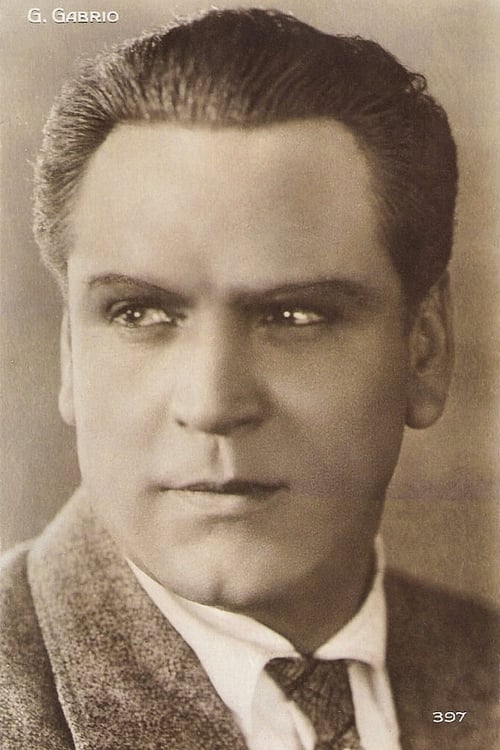Gabriel Gabrio
출생 : 1887-01-13, Reims, Marne, France
사망 : 1946-10-31
약력
From Wikipedia, the free encyclopedia.
Gabriel Gabrio (13 January 1887 – 31 October 1946) was a French stage and film actor whose career began in cinema in the silent film era of the 1920s and spanned more than two decades. Gabrio is possibly best recalled for his roles as Jean Valjean in the 1925 Henri Fescourt-directed adaptation of Victor Hugo's Les Misérables, Cesare Borgia in the 1935 Abel Gance-directed biopic Lucrèce Borgia and as Carlos in the 1937 Julien Duvivier-directed gangster film Pépé le Moko, opposite Jean Gabin.
Description above from the Wikipedia article Gabriel Gabrio, licensed under CC-BY-SA, full list of contributors on Wikipedia.

Noël Bienvenu
Noël Bienvenu, owner of a career, is a widower and lives with his parents. His son Bastien, whom he despises, was sentenced to six months in prison for theft. Noël goes to see a dying friend, Romieux, who asks him to take care of his daughter Marthe, who has settled in Paris (Batignolles district). Noël goes there and discovers that Marthe is destitute (her lover Gaston being an incarcerated mobster): he then offers her to come and live with him and soon, marries her.
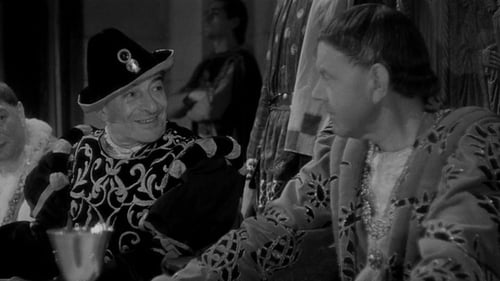
The Executioner
At the end of the 15th century, two traveling minstrels Gilles and Dominique come to the castle of Baron Hugues. Gilles charms Anne, Hugues' daughter, while Dominique charms both Hugues and Anne's fiance. Gilles and Dominique are not really in love: they were sent by the Devil to test desperate people. But Anne is so pure that Gilles is caught in his own trap... How will they fight against the Devil?

Charles
In a camp of sailors, the suicidal and solitary life of Greta, which makes men lose their heads.

Heim
In 1917, in a small village in the North, Abbe Gaillard is suspected by the Germans of facilitating the escape of French and Belgian soldiers. A false alibi makes him innocent and he can thus continue his mission, thanks to the devotion of an Alsatian who, in enemy uniform, obscurely serves his country.

Honoré De Balzac
The great Italian opera composer recalls his eventful life on his deathbed: his childhood in Busseto, his studies in Milan, his first opera "Oberto, conte di San Bonifacio", the death of his wife and his children killed by smallpox.

Panturle, le paysan d'Aubignane
In the 30s, a small village in the Provence is losing its inhabitants because young people prefer to go to the city to find easy jobs and escape from being farmers living in relative poverty. Only a few old people and the poacher Panturle remain. Panturle dreams of bringing the village back to life, finding a wife, founding a family and work as a farmer. One day, the village is visited by a traveling knife-grinder, Urbain Gedemus and a young woman, Arsule. Gedemus treats Arsule like a slave, but Arsule accept this because she has nowhere to go and -we guess- her 'work' with Gedemus is the last thing that saves her from being a prostitute. When she meets Panturle and knows about his dreams, she escapes from Gedemus and decides to stay with him. Together, they start a new life, made of hard farming work but mostly of happiness to have each other - fulfilling the earlier dreams of Panturle. Can anything break the happiness of their new life?

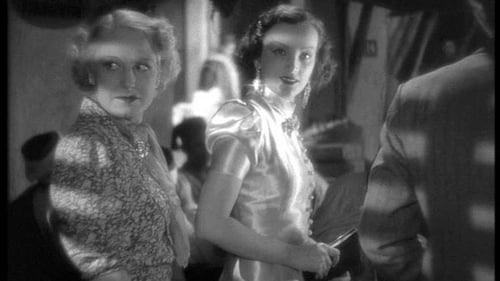
Carlos
프랑스령인 카스바에서 은둔하고 있는 도둑들의 우두머리인 페페는 그 지역 사람들에게 두터운 신망을 받고 있다. 경찰은 도둑질을 하고 카스바로 숨어드는 그의 일당들을 잡아보려고 하지만 매번 페페를 도와주는 주민들에 의해 실패한다. 그러던 어느 날 밤, 페페는 경찰의 기습을 피해 달아나다가 마침 그곳을 여행 중이던 미모의 여자와 마주치게 되는데...

Nikita
Political turmoil convulses 19th-century Russia as Razumov, a young student preparing for a career in the czarist bureaucracy, unwittingly becomes embroiled in the assassination of a public official.
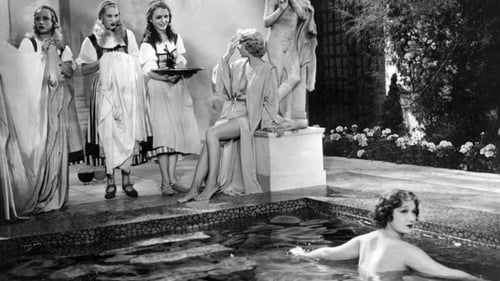
César Borgia
French silent film pioneer Abel Gance directs this 1935 classic about Lucrezia Borgia, her brother, Cesare. and her father, Pope Alexander VI -- one of history's most ruthless and ambitious crime families.

An Hungarian young man hides his real identity as baron Barinkay until he returns to his birthplace and claims the family properties, now occupied by a clumsy pig dealer who has a beautiful daughter. The gypsy girl is not bad looking either, and the gypsies are willing to help him recover his home and fortune. French version of Der Zigeunerbaron based on the Strauss operetta, filmed at the same time with a different cast except for Wohlbrück.

Mounier

Fiocle
The story focuses on a street in the Parisian banlieue where Italian and French workers live. Their neighborhood will soon be demolished and a mysterious character hides himself in this street.

James Godfrey
The plot revolves around an oil swindle in a South American country.

Jacques
A more small scale version of the story Griffin used for his epic Orphans Of The Storm: a doctor tries to reunite two sisters who have become separated from each other during the whirlwind of the French Revolution.

Olivier
A young man, Charles, operator in a neighborhood cinema, is suspected of involvement in the theft of jewelry. His fiancée, Lucette, but it would save would necessitate denounce his brother Olivier who is the leader of the band of thieves. Lucette will see the victim, the jeweler Van Hoolst who agrees to withdraw its complaint against restitution jewelry. Thieves do not meet the market but ultimately, the operator is cleared and becomes the owner of the cinema.

The owner of a fairground shooting gallery, haunted by the crime he committed ten years before with the complicity of his friend and associate, is ridden with guilt. One day, as he is under the influence of alcohol, he confesses his crime. In vain, for nobody, including the police, wants to believe him...

Amédée
The story is about a drug ring and the finally successful efforts of the Paris police to break it up. A young detective goes into a den in Paris' Chinatown, following a clue, and that is the last seen of him until his body is found floating in the Seine several days later. The only clue is a woman's glove. The dead man's friends on the force vow to avenge him, and receive information leading them to suspect one Sandra, a beautiful foreigner, played by the stunning Marcelle Chantal.
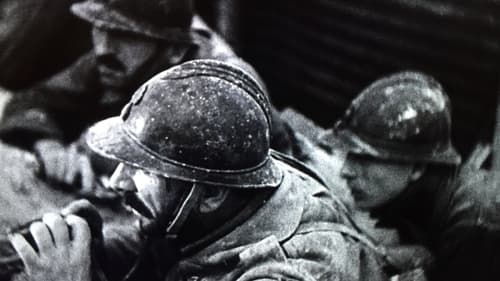
Sulphart
젊고 애국적인 학생인 드마시는 1914 년 프랑스 군대에 합류하여 조국을 방어합니다.
나무 십자가는 지금까지 만들어진 영화 중 가장 강력한 반전영화일 것입니다. 흰색 무덤 표시가 박힌 우울한 언덕의 인상적인 장면부터 시작하여 영화는 절망과 전쟁의 공포를 묘사합니다.
세계1차대전 기간 동안에 이 이야기는 드마시 라는 이상주의 학생을 포함하여 모든 프랑스인들에 집중하게 합니다.
애국의 열정으로 전쟁을 치르기 위해 사람들은 전쟁의 무서운 현실을 빠르게 환멸을 느낍니다. 그들이 10 일 동안 계속되는 적의 폭격을 견뎌 내지 못할 때, 군인들은 그들의 참호가 지하에서 무너지고 있다는 끔찍한 현실을 보게 됩니다.

Gregory
In the Yukon, searching for gold, Hurricane picks up a paper and discovers that the girl back home is planning to marry another man. Abandoning all care, Hurricane is soon embroiled in a fight in which guns play a part. It is then that the true value of one of his companions, Flossie, a girl of the gold-fields, becomes apparent.

The new French military attaché at the Constantinople embassy helps a young woman being blackmailed by her own husband.

Rabbas
Father-and-son lion tamers, Rabbas and Léo share a mistress - Rosita, the " lovely bitch " of the film's title. She is as wild as their lionesses and, in a single night the father is injured and the son attempts suicide. Only when Rosita leaves the circus can things get back to normal.

Fermin
Wine Cellars itself is a Spanish-French co-production. He shot the film in the Paris studios and also in Spain, Andalusia and Seville. According to the critics, his story of love, honour, revenge, bulls and vineyards masterfully captures the spirit of this region, the sun beating down on the parched earth, life on the farms and vineyards and the celebrations coloured by the famous flamenco dance. Wine Cellars was originally a silent film and its soundtrack was only added later.


Germain Sabrier
"Adapted from a play by Romain Coolus, whose work Dulac had covered as a theater critic at the turn of the century, this atmospheric and socially inquisitive film tells the tale of an independent, sexually liberated woman (Eve Francis) who is torn between her husband (Gabriel Gabrio) and her lover (Paul Guide). Controversial at the time of its release, Antoinette Sabrier finds Dulac using her bold sense of visual rhythm to achieve a complex portrait of a woman trapped in an unhappy marriage and a nuanced investigation into human intimacy, with her characters’ emotions expressed through then-innovative cinematic techniques such as slow motion and associative montage. " - Film Society of Lincoln Center

Guilty of insulting Christ Ahasverus became forever eternity the wandering Jew. On 13 February 1682, during a night of pogrom in the Warsaw ghetto a Frenchman married to a Polish Jew is assassinated by members of a secret society.

Jean Valjean
Jean Valjean is a good man who is nevertheless convicted and imprisoned for a minor offense. When he escapes, he is pursued for decades by the unrelenting lawman, Javert.

A Spanish festival reveals the emotional distance between a woman and a man.
